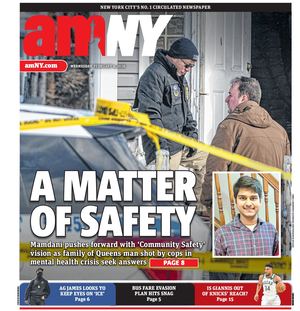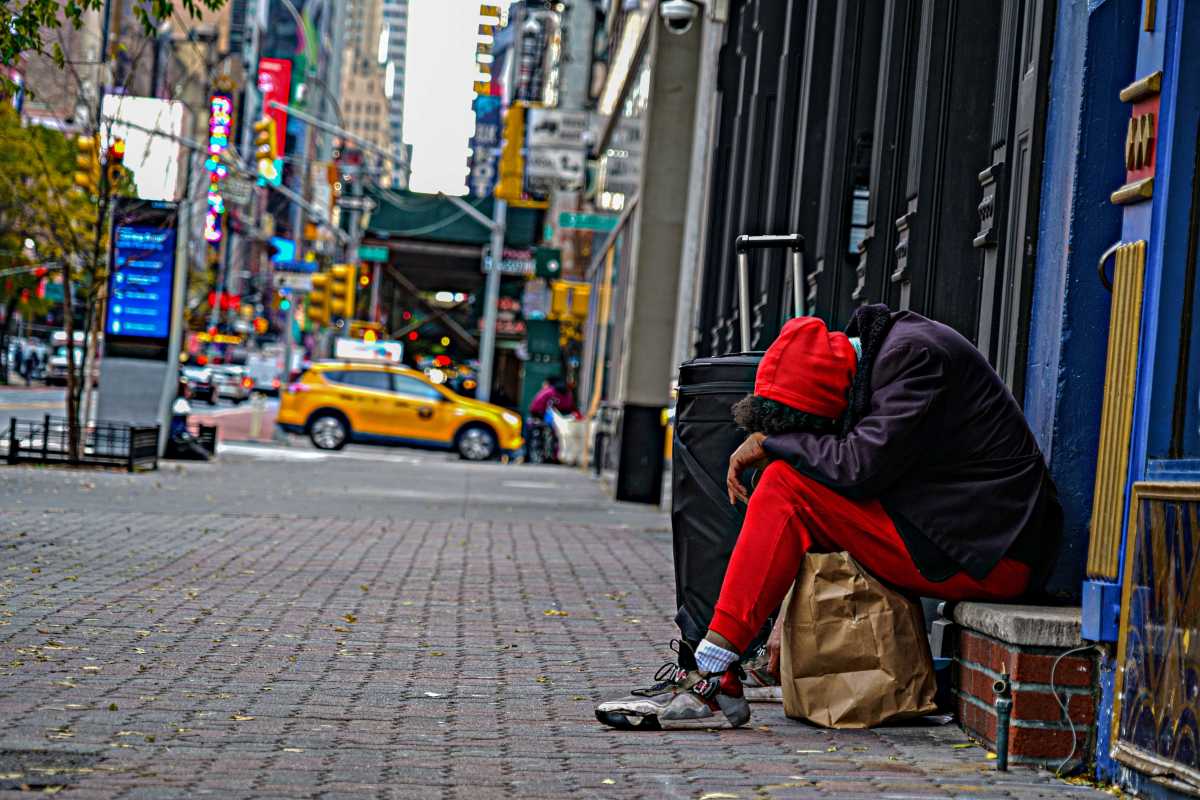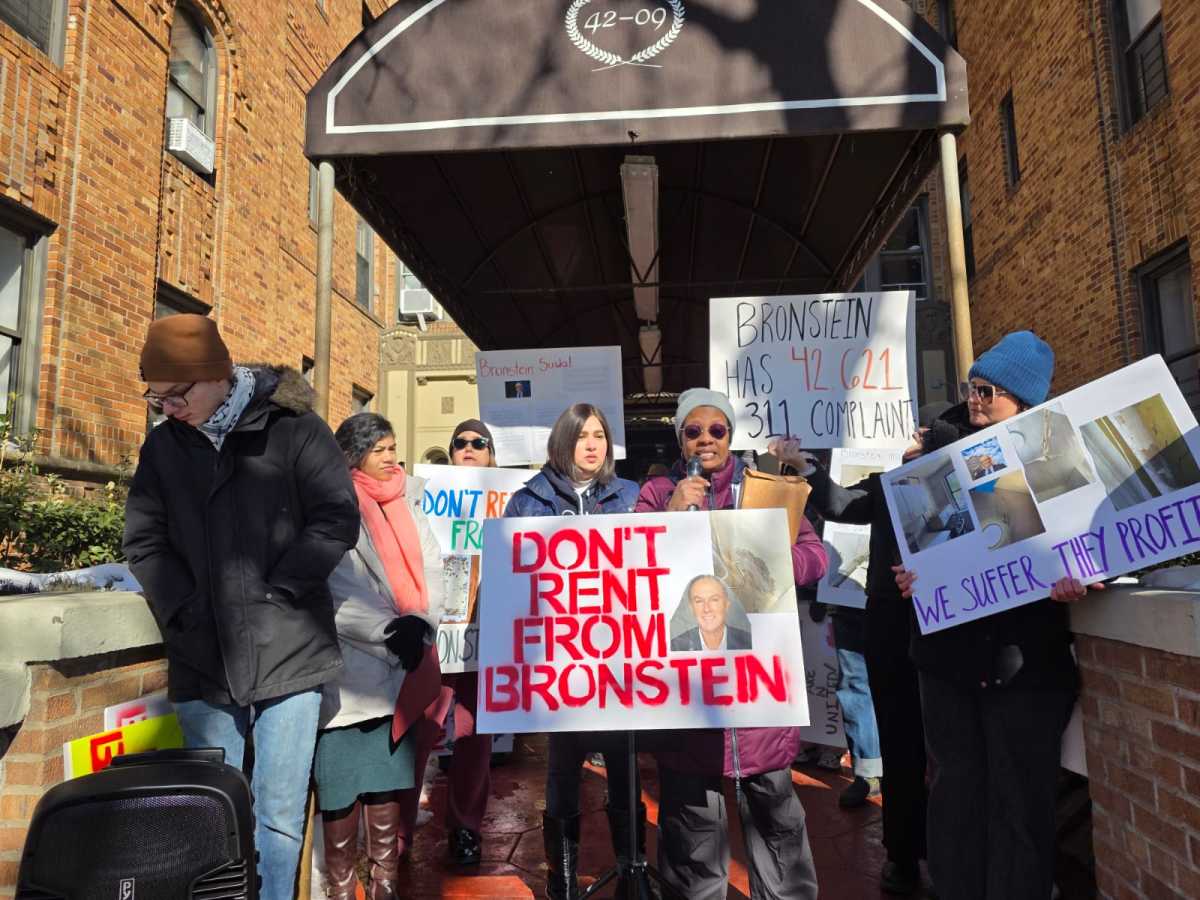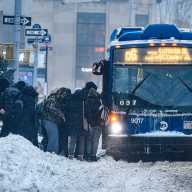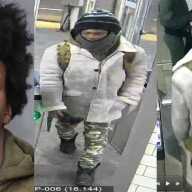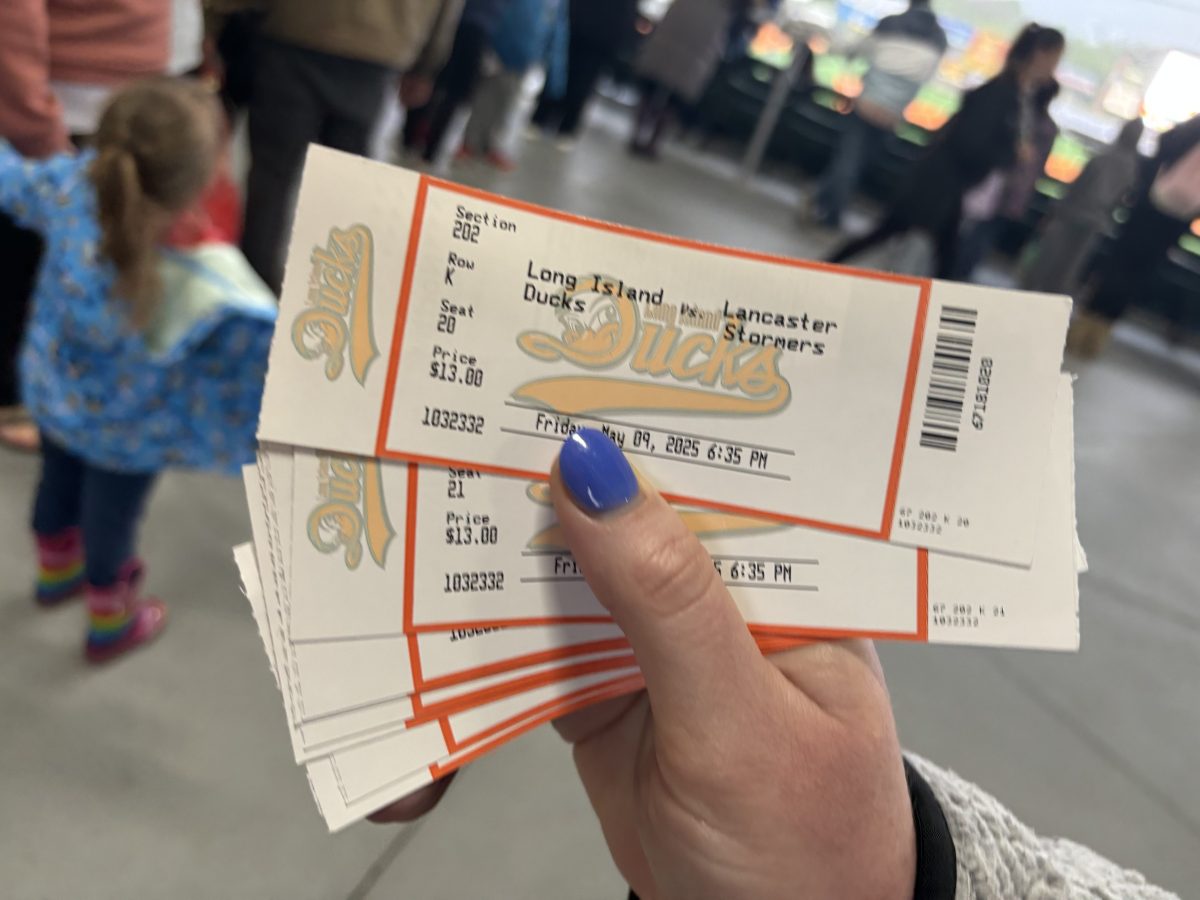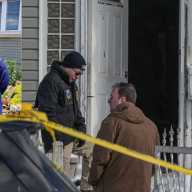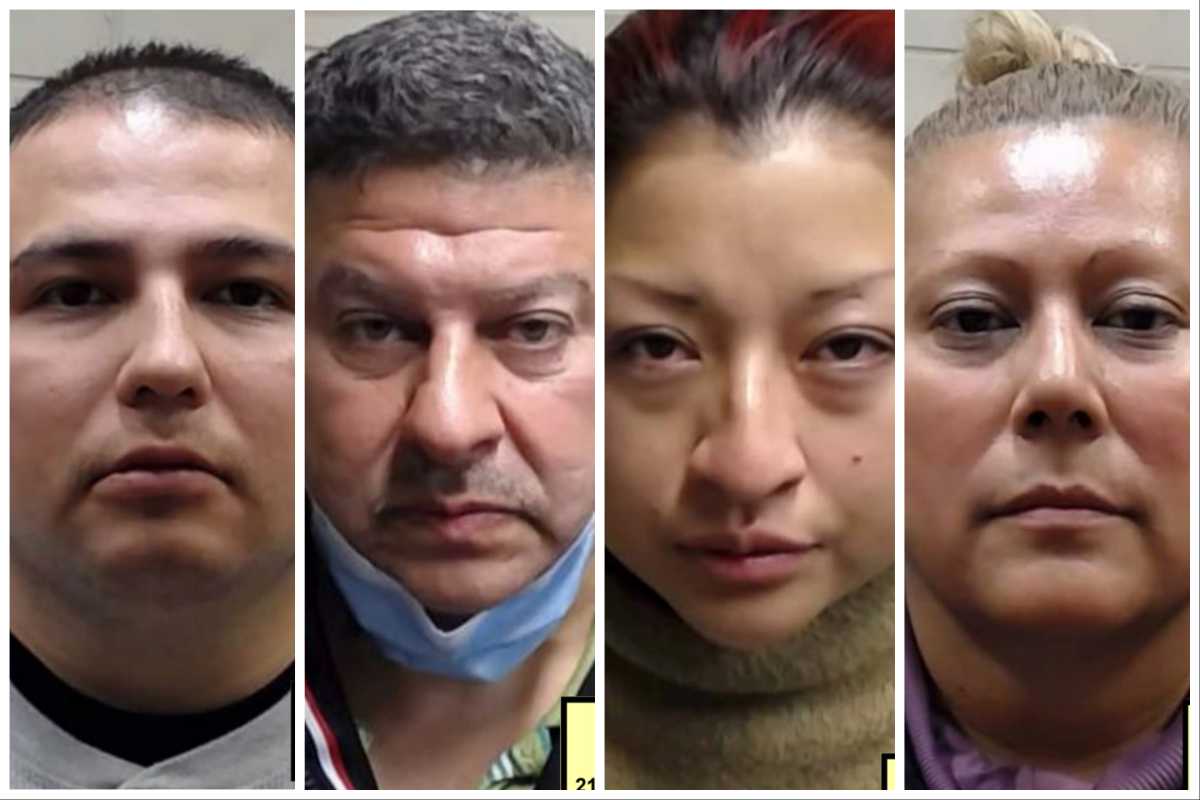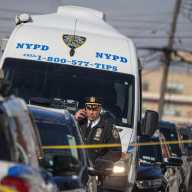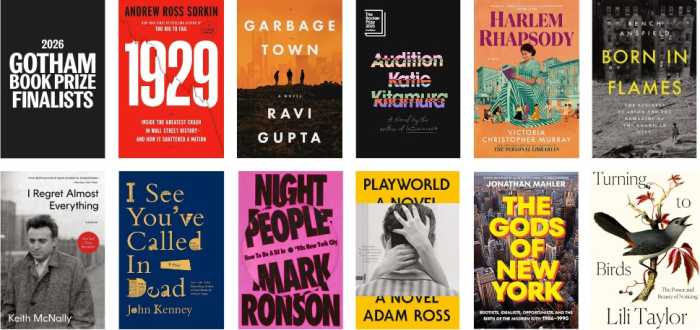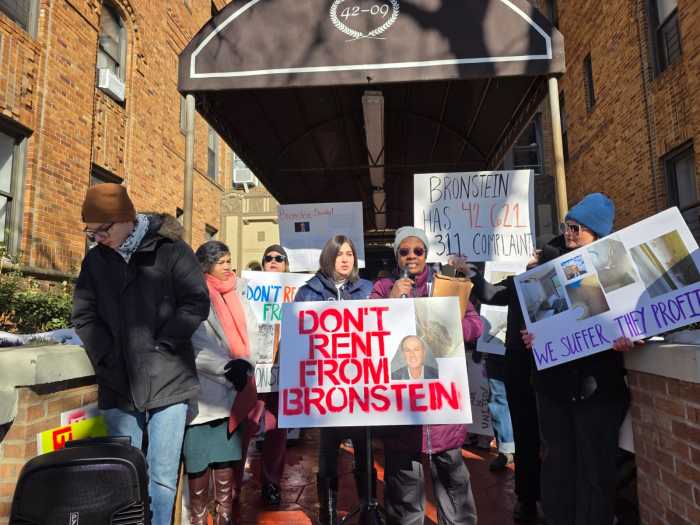A war has been raging in the Chelsea neighborhood since the dawn of the pandemic, but it is not a battle against the COVID-19 virus. Instead, it is a fight brewed from one of its symptoms.
Longtime residents and businesses have been jousting with the new kids on the block—homeless individuals taking refuge in otherwise vacant hotels. In the wake of the novel coronavirus, many of those sleeping rough throughout the city were moved into unused hotels and inns in hopes of preventing the spread of the virus. However, this has created a dispute between new and seasoned residents. Many longtime locals say that the area has changed for the worse, citing blatant drug use, mounting garbage, and an exponential increase in violence making them feel unsafe in their own neighborhood. Some store owners have even taken to padlocking their fridges, which they say is to prevent homeless individuals from stealing bottles of soda while others claim they are losing customers from constant harassment.
On the opposing side, those taking up residence in the myriad of Chelsea hotels counter these claims, stating that they are not the monsters they are made out to be by the media and locals. On the contrary, they say they are merely people down on their luck and persons suffering from hard lives, simply requesting more compassion and empathy. These vagrant New Yorkers also make the claim they are uniformly displaced, essentially transported from hotel to hotel after resident complaints.
These combative factions have been at each other’s throats for well over nine months now and the friction is heating up further still with the arrival of the COVID-19 vaccine and its ever-growing dispersal. While many are excited about the prospect of the return to normalcy, those currently living in make-shift shelters are concerned about their uncertain future.
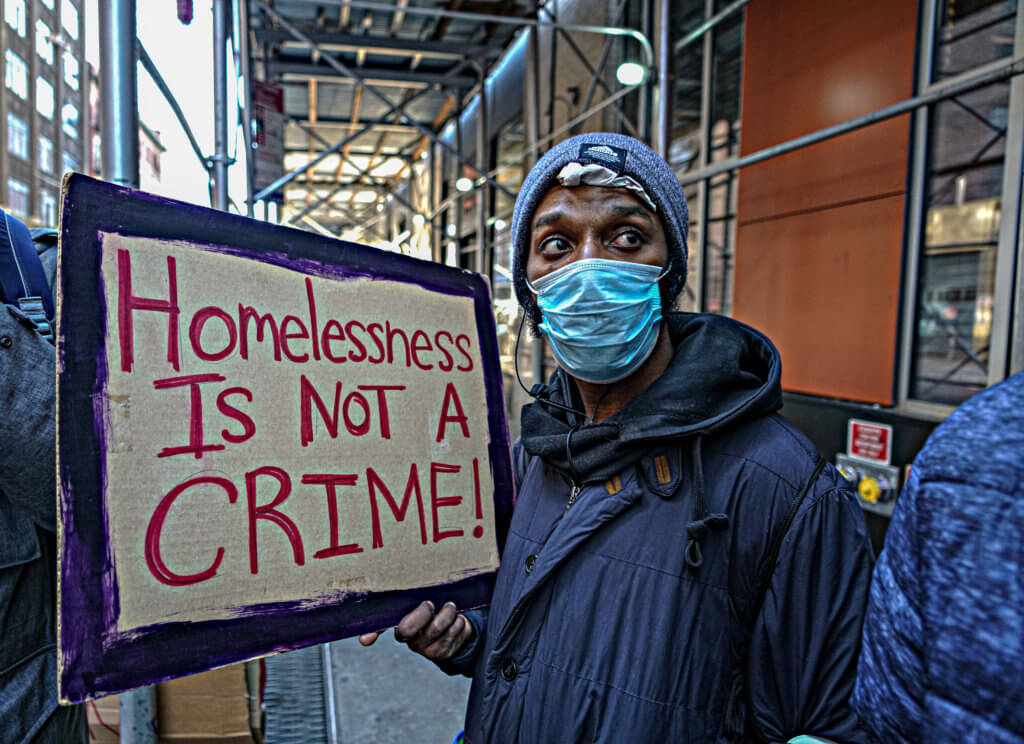
Those taking shelter in Hotel Central on West 36th street were forced to move to the Four Seasons Hotel, on West 40th Street, between 8th and 9th Avenue. In response to this, Marni Halasa— candidate for City Council District 3—held a rally in protest of these displacements at their former home on Jan. 12th.
“Here we go again, it’s a Band-Aid. They keep on moving the homeless everywhere. They need to find them permanent housing. This displacement is abusive, I am here to shut it down,” Halasa told amNewYork Metro outside Hotel Central.
Those at the rally who have been removed from the hotel say they feel like they are being passed around the city like ping pong balls, constantly becoming another person’s problem. Still, they hope some New Yorkers will feel empathy for their plight.
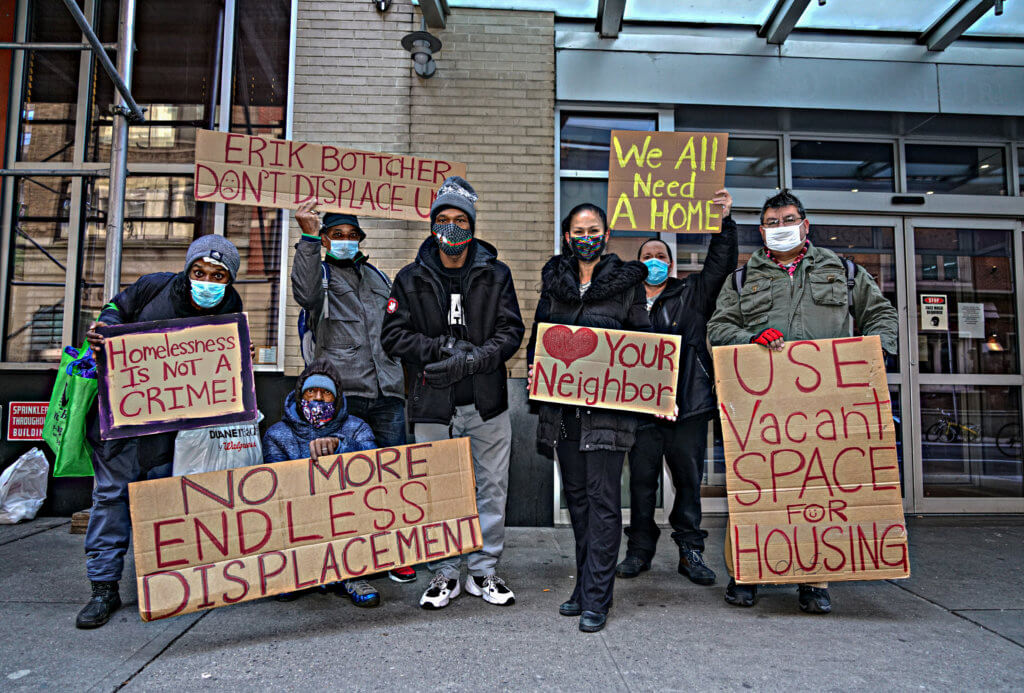
“It is still traumatic. When we moved, they only allowed us to take two bags, I lost all my property. I need my clothing,” said Michael Shade Witherspoon, a former resident of Hotel Central. “I was in prison, I paid for my time, I paid my due. When I got released and was put into a shelter system, it was like going back to prison,” Witherspoon added.
John Green, a fellow shelter resident agreed. “I have been on this rollercoaster ride for a while, I am tired of being tired. The food they serve is horrible, they treat us like animals,” Green said.
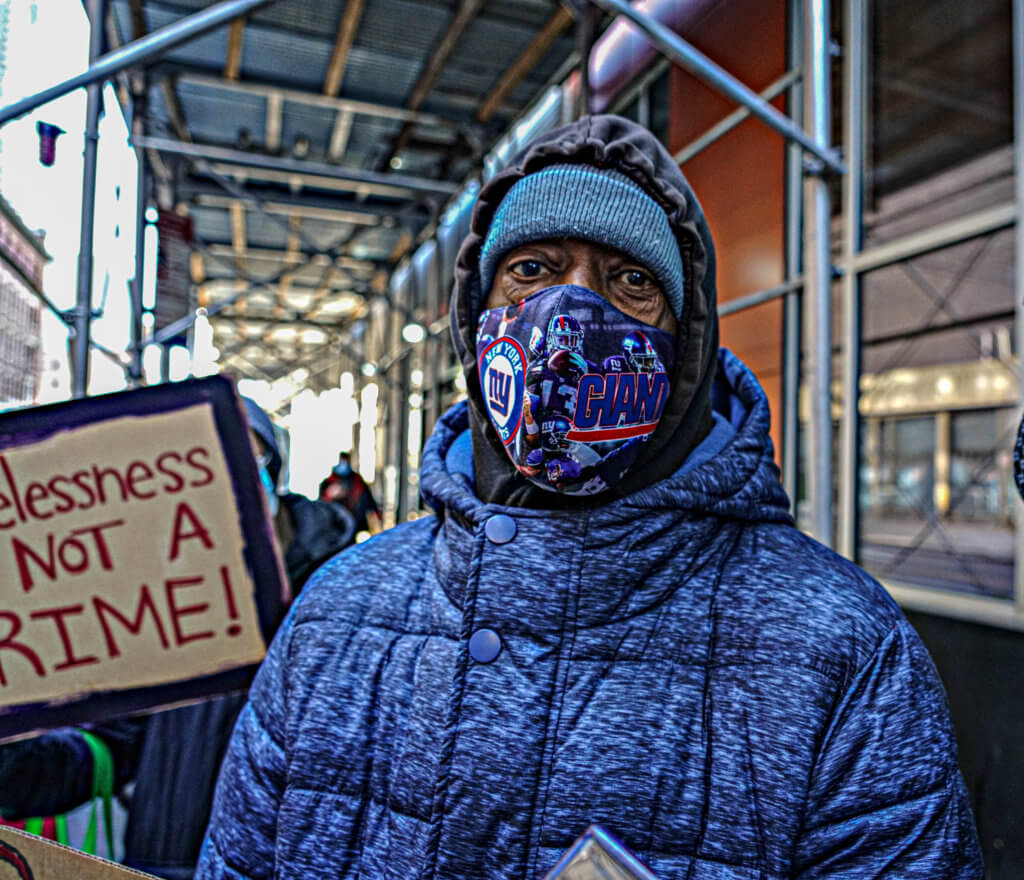
However, some business owners in the area feel like those dwelling in the hotels are playing victims. Workers in the area say they have been living in a hell hole since the new residents arrived, witnessing a revolving door of crimes and NYPD responses during a global pandemic that has them desperately trying to remain open.
“I have seen you guys here every day, shooting up and smoking dope. Drinking and pissing on the floor. You are not wearing masks!” said Joel, a worker at Fireproofing Corp. of America on West 36th Street as he confronted members of the rally. “Six months is long enough to get a job,” he added before storming away.
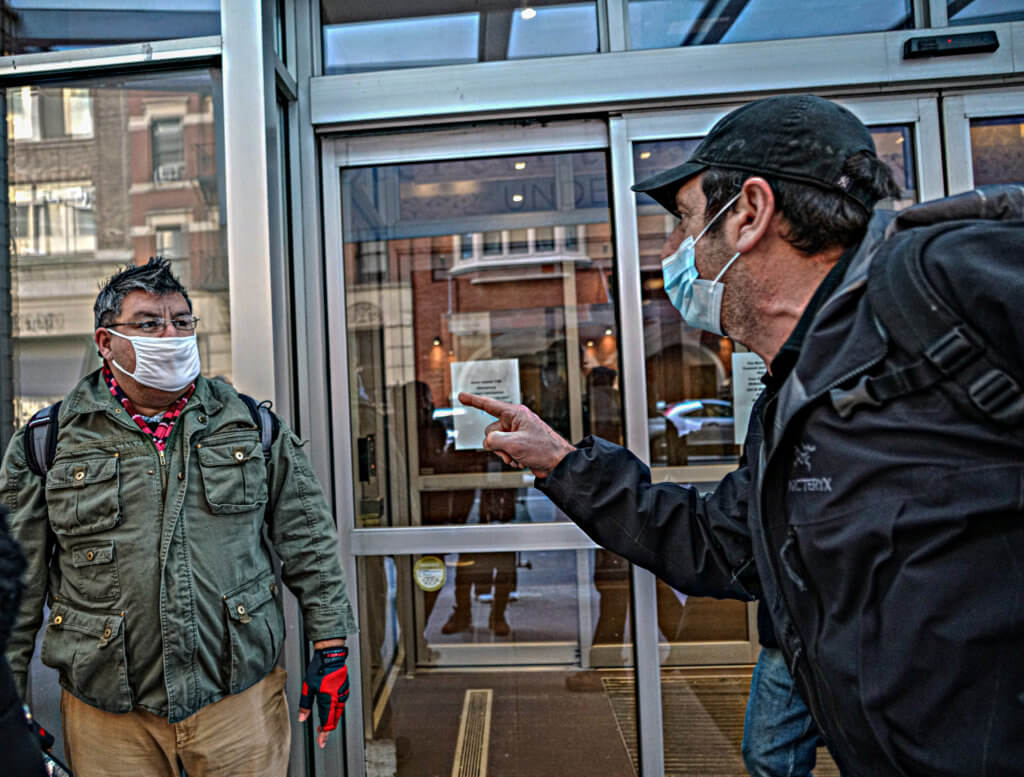
Not all business owners in the area see the situation in such black and white terms though. John Accardi, co-owner of Vito’s Slices and Ices has seen things he says he has only heard about in stories. From attacks on his customers to assaults on his family, he has witnessed stabbings and drug use. Still, he tells amNewYork that he does not believe all those living in the nearby hotels are an issue. Instead, he feels that there is a third component at play stemming from a certain few who suffer from mental health problems, whom he postulates require care they are not receiving.
“Certainly not all of them are bad people, that’s not what I am saying. But many of them have mental health problems, a huge portion of them have serious health problems. That’s caused a lot of problems here in the neighborhood,” said Accardi.
The business owner has been forced to cut his hours and close earlier due to safety concerns, saying he only judges from what he has seen, and what he has seen has shaken him to the core.
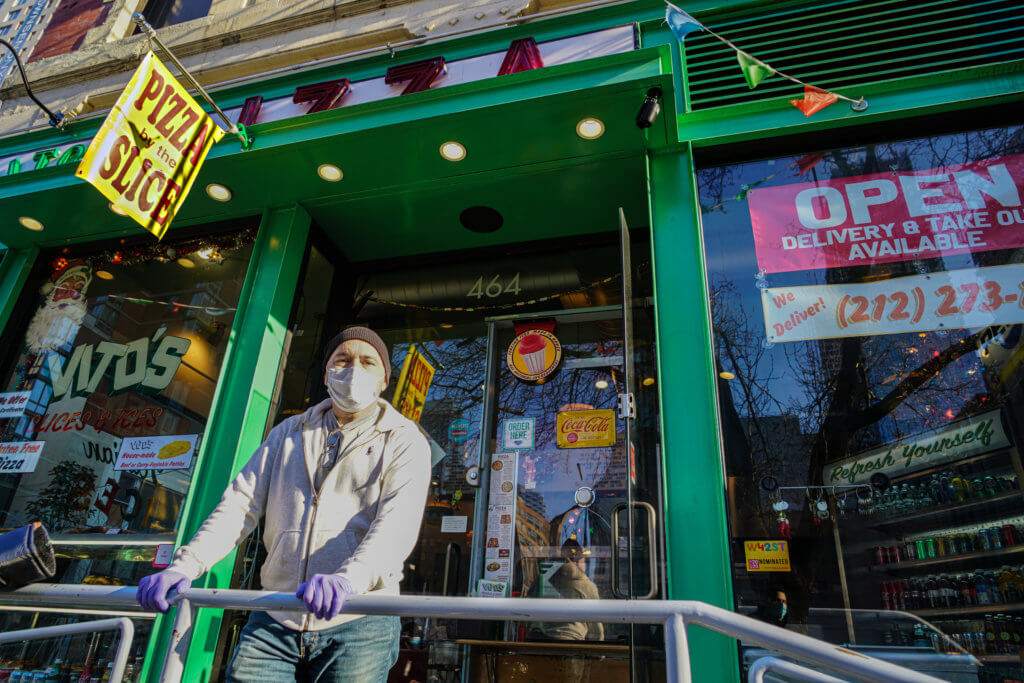
“We have had many violent incidents right here. We have had people arrested, my son almost got stabbed, one of my employees got slashed. There was a woman who was beaten right at this corner about a month ago, I heard that she ended up dying. To see these things on a daily basis is medieval,” Accardi said, relieving these macabre moments.
Despite all the horrors he has observed, Accardi says he tries to be fair and instead of putting blame on those living in poverty, he calls elected officials, such as Mayor Bill de Blasio, accountable for not establishing more sufficient care systems in place.
